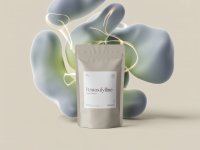
Holy Basil
Description
Holy Basil, also known as Tulsi, is an adaptogenic herb originating from India and revered in Ayurvedic medicine for centuries. It's known for its potential to reduce stress, support the immune system, and help regulate blood sugar. This article provides a comprehensive yet accessible overview of Holy Basil, its benefits, uses, and safety considerations.
Quick Overview: Holy Basil At-a-Glance
- Key Benefits: May help manage stress, support immune function, and regulate blood sugar levels.
- Primary Mechanism: Adaptogenic properties, potentially modulating cortisol and other stress hormones.
- Best For: Individuals seeking to manage stress, support overall well-being, and potentially regulate blood sugar.
- Typical Dose Range: 300-600mg of extract daily, but dosages vary widely in studies.
- Key Consideration: More high-quality human studies are needed to confirm the benefits and safety.
Table of Contents
Categories & Effectiveness
Learn about our rating methodologyBrain Health
Brain Antioxidant Shield
6/10Moderate evidence of effectiveness
Neuro-Repair Support
4/10Moderate evidence of effectiveness
Neurogenesis (BDNF/NGF)
2/10Limited evidence of effectiveness
Cognition
Memory & Recall
4/10Moderate evidence of effectiveness
Mental Acuity
4/10Moderate evidence of effectiveness
Mood & Stress
Stress Resilience
9/10Strong evidence of effectiveness
Anxiety Relief
7/10Strong evidence of effectiveness
Cortisol Regulation
7/10Strong evidence of effectiveness
Mood Elevation
7/10Strong evidence of effectiveness
Physical Performance
Blood Sugar Support
9/10Strong evidence of effectiveness
Sleep Quality
Deeper Sleep Quality
5/10Moderate evidence of effectiveness
Faster Sleep Onset
4/10Moderate evidence of effectiveness
Systemic Health
Cholesterol Management
8/10Strong evidence of effectiveness
Immune System Boost
8/10Strong evidence of effectiveness
Anti-Inflammatory (Systemic)
7/10Strong evidence of effectiveness
Blood Pressure Regulation
7/10Strong evidence of effectiveness
Dosage & Side Effects
Recommended Dosage
Potential Side Effects
Bioavailability & Half-Life
Interactions & Stacks
Recommended Products
Gya Labs Holy Basil (Tulsi) Essential Oil - 0.34 Fl Oz - 100% Pure Natural Holy Basil Oil for Diffuser, Candle Making - Sweet Balsamic Scent
- Rated 4.4 stars by 135,487 customers
- Premium quality ingredients
Pure Holy Basil (Tulsi) Floral Water (Hydrosol) (Ocimum santum) 50ml (1.69 oz)
- Rated 4.1 stars by 18 customers
- Premium quality ingredients
Basilikum Tulsi 360 Pulver Kapseln NATUR PUR NICHT hochdosiert KEIN EXTRAKT OHNE ZUSATZSTOFFE OHNE FÜLLSTOFFE. 26418
- Rated 5.0 stars by 2 customers
- Premium quality ingredients
As an Amazon Associate we earn from qualifying purchases. Prices and availability are accurate as of the date/time indicated and are subject to change.
Benefits by Use Case
Stress Reduction & Anxiety Relief
Holy Basil acts as an adaptogen, helping the body cope with stress by modulating cortisol levels and potentially increasing GABA. Studies show significant reductions in anxiety and stress symptoms with regular use. Best for those seeking natural anxiety relief and stress management.
User Review:
I tried holy basil to help me sleep which it did, but it also completely calmed my whole body down. No anxiety now...
Blood Sugar Regulation
Holy Basil may help stabilize blood sugar levels, particularly in individuals with prediabetes or type 2 diabetes. It may enhance insulin sensitivity and glucose metabolism. Consider This: This may not be a replacement for medical management of diabetes.
User Review:
Diabetes 2 blood sugar has gone down from 150's to 120's taking one 450mg capsule at bedtime.
Immune System Support
Holy Basil possesses antibacterial, antiviral, and antifungal properties, supporting the immune system's ability to fight off infections. It may also enhance immune cell activity. Quick Fact: Holy Basil has antimicrobial properties.
Research Finding:
A small randomized double-blind, and placebo-controlled trial found increased immune response with increased Natural Killer (NK) and T-helper cells in healthy adult participants compared to placebo volunteers after 4 weeks of 300 mg or ethanolic tulsi leaf extract daily taken before food
anti-inflammatory
Compounds like eugenol in Holy Basil act as inflammation modulators, potentially reducing inflammation throughout the body. This may benefit conditions like arthritis and cardiovascular disease. Key for You: Holy Basil's anti-inflammatory properties can support overall health.
Research Finding:
Tulsi is characterized by antioxidant, anti-inflammatory, and anti-aging properties and provides treatment for conditions like asthma, anxiety, bronchitis, and flu.
cognitive function
Some studies suggest Holy Basil may improve cognitive flexibility, short-term memory, and attention. It may also reduce brain fog and enhance mental clarity. Best for those looking for a gentle cognitive boost.
Research Finding:
Holy basil (Ocimum sanctum Linn.) leaf extract enhances specific cognitive parameters in healthy adult volunteers: a placebo controlled study
Mechanism of Action
Frequently Asked Questions
Where to Buy Holy Basil
Based on quality, price, and customer reviews, here are our top recommended Holy Basil supplements:
Gya Labs Holy Basil (Tulsi) Essential Oil - 0.34 Fl Oz - 100% Pure Natural Holy Basil Oil for Diffuser, Candle Making - Sweet Balsamic Scent
- Rated 4.4 stars by 135,487 customers
- Premium quality ingredients
Pure Holy Basil (Tulsi) Floral Water (Hydrosol) (Ocimum santum) 50ml (1.69 oz)
- Rated 4.1 stars by 18 customers
- Premium quality ingredients
Tulsi Pulver Bio 250g - Indisches Basilikum - Ocimum Tenuiflorum - Königsbasilikum - Vegan - Abgefüllt und kontrolliert in Deutschland - Biotiva
- Rated 4.5 stars by 61 customers
- Premium quality ingredients
As an Amazon Associate we earn from qualifying purchases. Prices and availability are accurate as of the date/time indicated and are subject to change.
Summary & Expert Opinion
- Key Strengths: Adaptogenic properties, relatively safe for short-term use, potential benefits for stress and anxiety.
- Key Weaknesses: Limited high-quality human studies, inconsistent dosage recommendations, potential interactions with certain medications.
- Recommendation: A promising natural remedy for stress management and overall well-being, but more research is needed to fully understand its benefits and risks.
From a more technical perspective, Holy Basil's adaptogenic effects are thought to stem from its modulation of the hypothalamic-pituitary-adrenal (HPA) axis, a key regulator of the body's stress response. By influencing cortisol and other stress hormones, Holy Basil may help to restore balance and promote resilience to stressors. The phytochemical complexity of Holy Basil, with compounds like eugenol, ursolic acid, and rosmarinic acid, likely contributes to its diverse range of effects.
Furthermore, the impact of Holy Basil on neurotransmitter systems, particularly GABA, suggests a potential role in anxiety relief and mood regulation. However, the specific mechanisms and optimal dosages for these effects require further investigation. Conflicting study results and methodological limitations in existing research highlight the need for larger, well-designed clinical trials to confirm Holy Basil's efficacy and safety.
Genetic factors may also influence an individual's response to Holy Basil. While the provided research doesn't delve into specific genetic variations, it's plausible that variations in genes encoding enzymes involved in the metabolism of Holy Basil's active compounds could affect its bioavailability and duration of action. Long-term effects and more obscure risks/benefits are not well-documented in the provided materials, emphasizing the need for caution and consultation with a healthcare professional.
In conclusion, Holy Basil offers a promising natural approach to stress management and overall well-being. However, further research is needed to fully elucidate its mechanisms of action, optimize dosages, and identify potential long-term effects.








